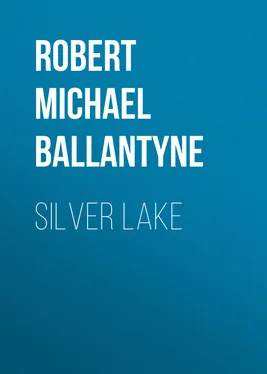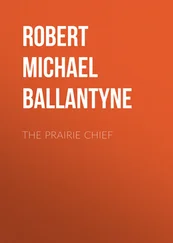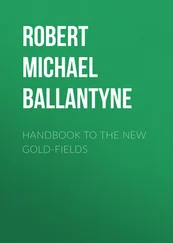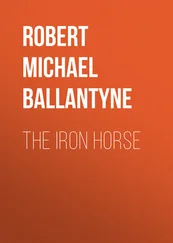Robert Michael Ballantyne - Silver Lake
Здесь есть возможность читать онлайн «Robert Michael Ballantyne - Silver Lake» — ознакомительный отрывок электронной книги совершенно бесплатно, а после прочтения отрывка купить полную версию. В некоторых случаях можно слушать аудио, скачать через торрент в формате fb2 и присутствует краткое содержание. Жанр: Детские приключения, literature_19, foreign_antique, foreign_prose, foreign_children, на английском языке. Описание произведения, (предисловие) а так же отзывы посетителей доступны на портале библиотеки ЛибКат.
- Название:Silver Lake
- Автор:
- Жанр:
- Год:неизвестен
- ISBN:нет данных
- Рейтинг книги:3 / 5. Голосов: 1
-
Избранное:Добавить в избранное
- Отзывы:
-
Ваша оценка:
- 60
- 1
- 2
- 3
- 4
- 5
Silver Lake: краткое содержание, описание и аннотация
Предлагаем к чтению аннотацию, описание, краткое содержание или предисловие (зависит от того, что написал сам автор книги «Silver Lake»). Если вы не нашли необходимую информацию о книге — напишите в комментариях, мы постараемся отыскать её.
Silver Lake — читать онлайн ознакомительный отрывок
Ниже представлен текст книги, разбитый по страницам. Система сохранения места последней прочитанной страницы, позволяет с удобством читать онлайн бесплатно книгу «Silver Lake», без необходимости каждый раз заново искать на чём Вы остановились. Поставьте закладку, и сможете в любой момент перейти на страницу, на которой закончили чтение.
Интервал:
Закладка:
R. M. Ballantyne
Silver Lake
Chapter One.
The Hunters
It was on a cold winter morning long ago, that Robin Gore, a bold hunter of the backwoods of America, entered his parlour and sat him down to breakfast.
Robin’s parlour was also his dining-room, and his drawing-room, besides being his bedroom and his kitchen. In fact, it was the only room in his wooden hut, except a small apartment, opening off it, which was a workshop and lumber-room.
Robin’s family consisted of himself, and his wife, and his son Roy, who was twelve years of age—and his daughter Nelly, who was eight, or thereabout. In addition to these, his household comprised a nephew, Walter and an Irishman, Larry O’Dowd. The former was tall, strong, fearless, and twenty. The latter was stout, short, powerful, and forty.
The personal history of Robin Gore, to the point at which we take it up, runs briefly thus:—
He had been born in a backwood’s settlement, had grown up and married in the little hamlet in which he had been born, and hunted around it contentedly until he was forty years of age. But, as population increased, he became restive. He disliked restraint; resolved to take his wife and family into the wilderness and after getting his nephew and an Irish adventurer to agree to accompany him, carried his resolution into effect.
He travelled several hundreds of miles into the woods—beyond the most remote settlement—built three wooden huts, surrounded them with a tall stockade, set up a flagstaff in the centre thereof, and styled the whole affair, “Fort Enterprise.”
“I’m sorry to bring you to such a lonesome spot, Molly, my dear,” said Robin, as he sat on the trunk of a fallen tree on the afternoon of the day on which he arrived at the scene of his future home; “it’ll be rayther tryin’ at first, but you’ll soon get used to it, and we won’t be bothered hereaway wi’ all the new-fangled notions o’ settlement folk. We’ll dwell in the free wilderness, where there are no tyrannical laws to hamper a man, an’ no nonsensical customs to fix the fashion of his coat an’ leggins. Besides, you’ll have Roy an’ Nelly an’ Walter an’ Larry to keep you company, lass, not to mention our neighbours to look in upon now and again.”
“Very true, Robin,” replied the wife, “I have no doubt it will be quite cheery and homelike in course of time.”
She looked out upon the broad bosom of the lake which lay before the site of their forest home, and sighed. It was evident that Mrs Gore had a strong partiality for the laws and customs which her husband abhorred.
The “neighbours” to whom Robin referred lived in a leather tent twenty miles distant from the Fort. They were an Indian, named “The Black Swan,” his wife, named “The White Swan,” and a half-caste trapper, whose proper name was unknown to all save himself. His cognomen in the wilderness was “Slugs,” a name which originated in his frequent use of clipped pieces of lead instead of shot in the loading of his gun.
But to return to the point from which we started:—
It was on a cold winter morning that Robin Gore entered his parlour and sat him down to breakfast.
It was not only cold—very cold; colder than ever was experienced in our favoured British isles—but it was also very dark. Robin had risen before daybreak in order to visit his traps, and shoot some game as early in the day as possible. The larder chanced to be nearly empty that day, a fact which was all the more to be regretted that it was New Year’s day, and, as Robin remarked, “that day didn’t occur more than once in the year.” This statement Larry O’Dowd disputed, affirming that it occurred “at laste twice ivery year—wance at the beginnin’ an’ wance at the end of it!”
“Come along, lad,” said Robin, trimming the candle as his nephew Walter entered, “we’ll ha’ to make the most of our time to-day, for we dine at sharp five p.m., an’ our dinner—leastwise the most of it—is at this moment alive an’ kickin’, if it’s not sleepin’, in the forest, and has got to be found and shot yet. Hallo! boy, where are you bound for?”
“For the woods, father, with you and Walter,” replied his son Roy, sitting down and coolly helping himself to a portion of bear’s meat with which the hunter was regaling himself.
“Nonsense, boy,” said Robin, somewhat gruffly.
“You’ll not be able to keep up with us,” added Walter, “for we’ve little time before us, an’ a long way to go.”
“If I break down I can turn back,” retorted Roy.
“Very good; please yourself;” said Robin in a tone of indifference, although his glance seemed to indicate that he was not sorry to see his boy determined to attempt an expedition which he knew from experience would be very trying to a lad of his years.
Breakfast over, the three hunters clothed themselves in habiliments suitable to the climate—leathern coats and trousers which were impervious to the wind; cloth leggings to keep the snow from the trousers; leather mocassins, or shoes with three pairs of blanket socks inside of them; fur-caps with ear-pieces; leather mittens with an apartment for the fingers and a separate chamber for the thumb, powder-horns, shot-pouches, guns, and snow-shoes. These latter were light wooden frames, netted across with deerskin threads, about five feet long and upwards of a foot wide. The shoes were of this enormous size, in order that they might support the wearers on the surface of the snow, which was, on an average, four feet deep in the woods. They were clumsy to look at, but not so difficult to walk in as one might suppose.
In silence the three hunters entered the dark woods in front of Fort Enterprise. Robin went first and beat the track, Walter followed in his footsteps, Roy brought up the rear. The father sank about six inches at every step, but the snow which fell upon his snow-shoes was so fine and dry, owing to the intense frost, that it fell through the net-work of the shoes like dust. Walter and Roy, treading in the footsteps, had less labour in walking, but Walter, being almost as strong as his uncle, took his turn at beating the track every two hours.
Through the woods they went, over mound and hollow, across frozen swamp and plain, through brush and break, until near noon, when they halted for rest and refreshment. While Walter cut firewood, Robin and Roy cleared away the snow, using their snow-shoes as shovels, and prepared their meal. It was simple; a few mouthfuls of dried meat and a tin can of hot tea—the backwoodsman’s greatest luxury, next to his pipe. It was short, too. Half an hour sufficed to prepare and consume it.
“Let’s see, now, what we have got,” said Robin, counting the game before resuming the march.
“More than enough,” said Walter, lighting his pipe for a hurried whiff, “ten brace of white grouse, four rabbits, six red foxes and a black one, and two wolves. We can’t eat all that.”
“Surely we won’t eat the foxes and wolves!” cried Roy, laughing.
“Not till we’re starvin’,” replied his father. “Come, let’s go on—are ye tired, lad?”
“Fresh as Walter,” said the boy, proudly.
“Well, we won’t try you too much. We’ll just take a sweep round by the Wolf’s Glen, an’ look at the traps there—after which make for home and have our New Year’s dinner. Go ahead, Walter, and beat the track; it is your turn this time.”
Without speaking, Walter slipped his feet into the lines of his snow-shoes, extinguished his pipe, and led the way once more through the pathless forest.
Chapter Two.
The Starved Indian
In the depths of the same forest, and not far from the locality to which we have introduced our reader, a Red Indian was dragging his limbs wearily along over the untrodden snow.
Читать дальшеИнтервал:
Закладка:
Похожие книги на «Silver Lake»
Представляем Вашему вниманию похожие книги на «Silver Lake» списком для выбора. Мы отобрали схожую по названию и смыслу литературу в надежде предоставить читателям больше вариантов отыскать новые, интересные, ещё непрочитанные произведения.
Обсуждение, отзывы о книге «Silver Lake» и просто собственные мнения читателей. Оставьте ваши комментарии, напишите, что Вы думаете о произведении, его смысле или главных героях. Укажите что конкретно понравилось, а что нет, и почему Вы так считаете.












